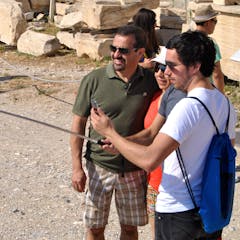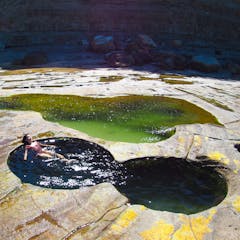
Artikel-artikel mengenai Travel
Menampilkan 1 - 20 dari 266 artikel

Love it or hate it, the ‘Acela Corridor’ has developed a widely recognized identity thanks to the trains that link it together.

Too much virtue language in a listing can cost an Airbnb host nearly $5,000 a year.

The answer lies in the tax code.

The American aerospace company Boeing has been synonymous with safe air travel for decades, but recent weeks have seen it plagued by a series of issues.

The closure of Lynx is an opportune time to review the state of Canadian commercial air travel and identify the challenges and opportunities Canada has in improving the sector.

Nearly 80% of people have accepted invitations to events they didn’t want to attend.

With big events drawing a growing share of of tourism dollars, F1 offers a potential glimpse of the travel industry’s future.

Black travelers want the tourism industry to recognize their full identity. That will require more than procedural checkboxes and targeted advertising.

Your next holiday could be a chance for some retail research.

If a former disability discrimination commissioner can be subjected to humiliating treatment at an airport, it’s likely the travel experiences of ‘everyday’ Australians with disability are even worse.

The expansion of social media and ubiquity of smartphone cameras has had a major impact on tourists’ behaviour.

In-flight entertainment has evolved significantly over the years, from a one-off experiment to the on-demand streaming services many of us are now used to.

The clock could be ticking for the travel industry unless action is taken to change our travel habits.

The content on social media platforms doesn’t always portray the locations accurately, setting unrealistic expectations and even luring tourists into trouble.

Big-spending Chinese tourists once buoyed the global travel industry. But with Chinese economy looking a little shaky, more are staying at home.

A sleep scientist explains how to maximise your chances of getting decent rest while trapped on a plane.

Canada has taken positive steps in recognizing and supporting LGBTQ+ communities. However, that support does not always extend to people seeking asylum.

We hear a lot about the negative impact of rate rises on mortgage repayments while little is made of the benefits of high interest rates.

New research suggests many families of autistic children are reluctant to travel.

Long journeys by car, boat, bus, train or plane can turn going away into a miserable ordeal.
